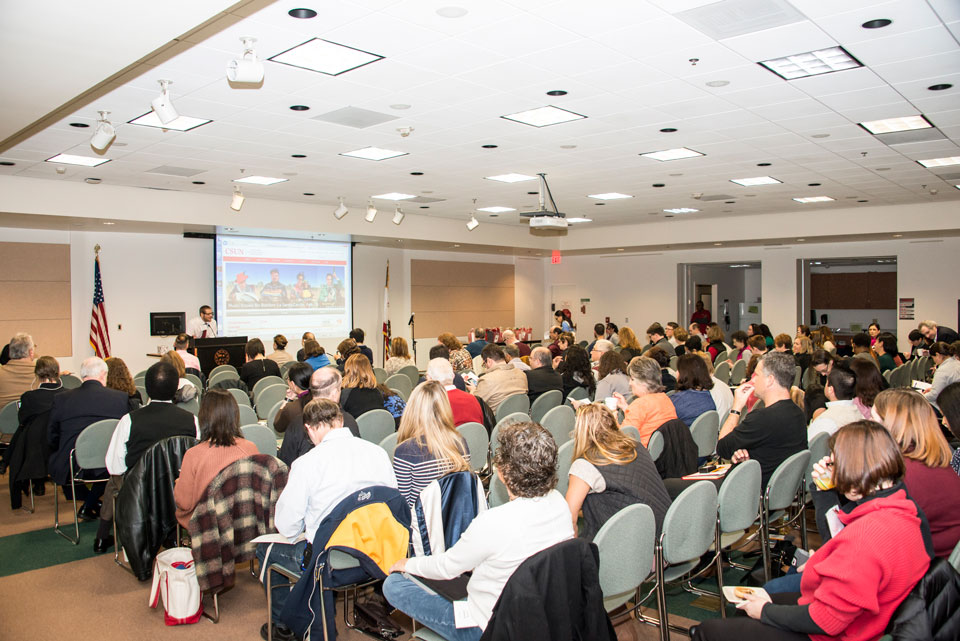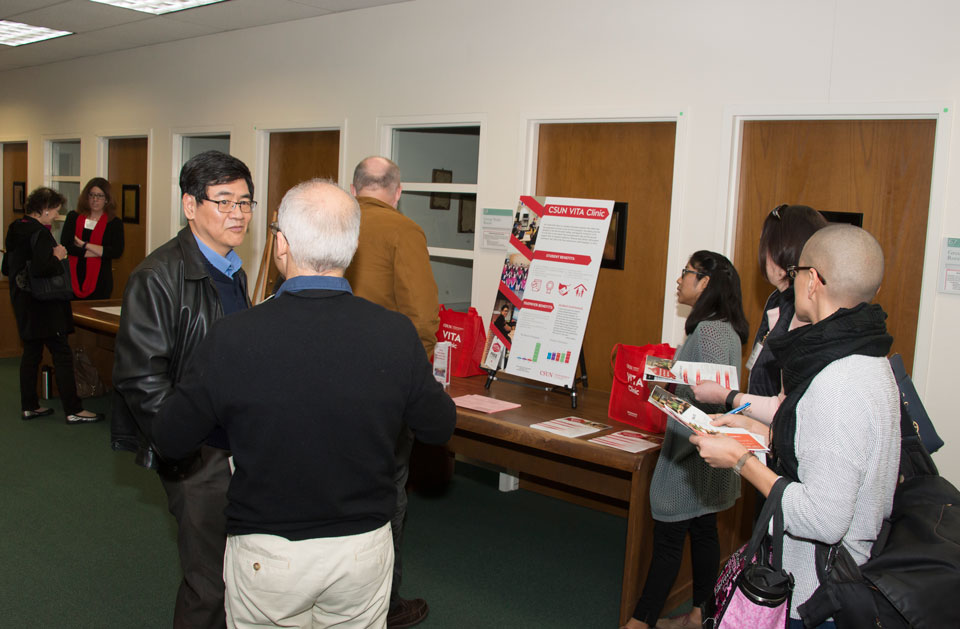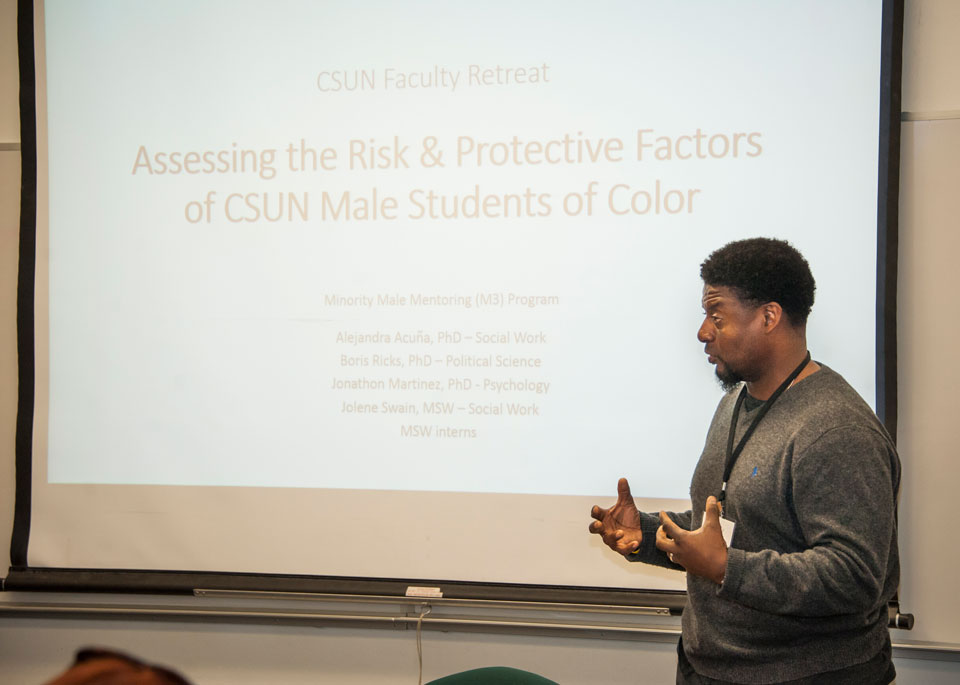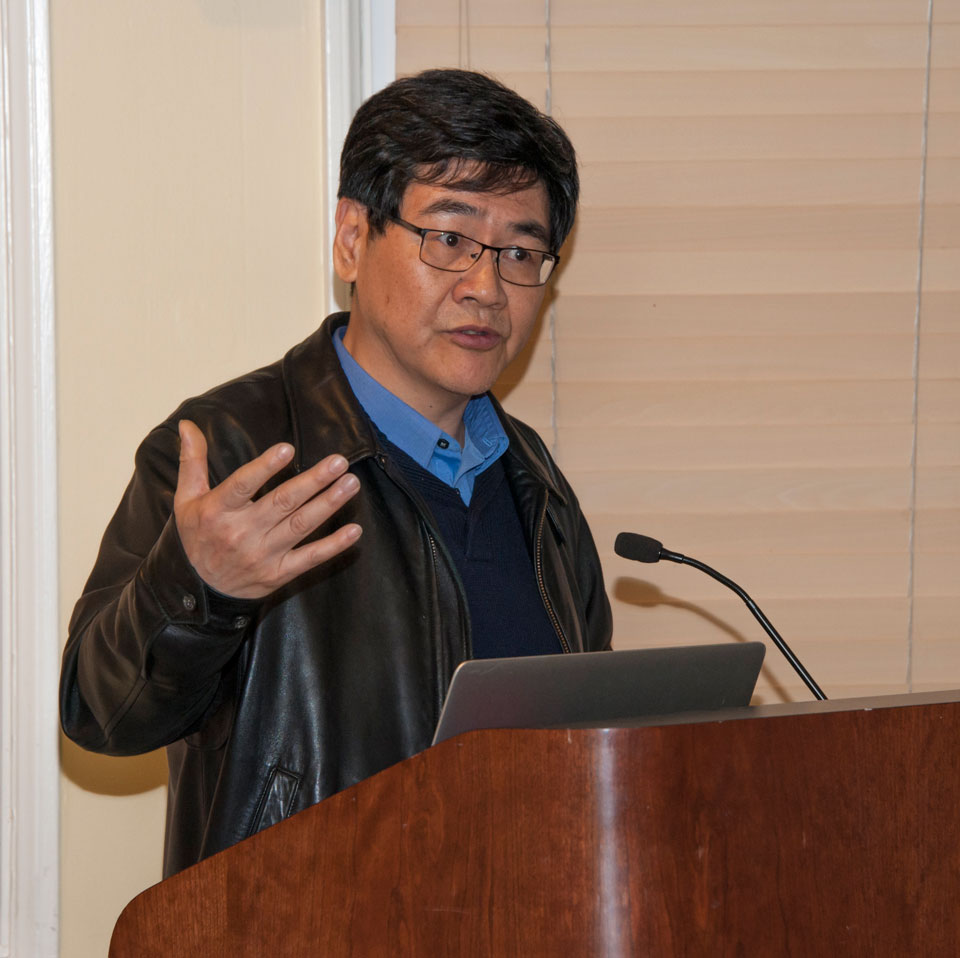Provost Highlights Inclusivity as Key to Ongoing Student Success
California State University, Northridge invited all faculty members to a faculty retreat Jan. 18, to explore the connection between faculty and student success. The Delmar T. Oviatt Library hosted the daylong event, featuring presentations from faculty and students about topics such as mentoring, scholarships, course content, collaboration and service learning.
Steven Bint, distinguished professor of sociology and public policy at University of California, Riverside, opened the retreat with his keynote address, “Tips/Tools/Behaviors/Actions for Faculty to Help Improve Graduation Rates.” CSUN Provost and Vice President for Academic Affairs Yi Li closed the event with a speech on “Student Success and Inclusivity,” at the Orange Grove Bistro on campus.
“Our students are from all walks of life,” Li said. “[They] have all different kinds of challenges, personal and academic. You are in the perfect position to help them. Just be welcoming.”
Li highlighted CSUN’s Educational Opportunities Program (EOP), which helps low-income, educationally disadvantaged or first-generation college students pursue higher education. He also discussed CSUN’s diverse student population, which includes students from a variety of ethnicities and socioeconomic backgrounds.
“Look at each of your students as an individual,” Li said. “Get them the kind of education experience they all deserve, and get them out the door [on] time.”
The retreat’s focus aligned with the CSU systemwide 2025 Graduation Initiative, which aims to support higher graduation rates. Li said it will be a challenging task for faculty to accommodate the needs of a diverse student body. Yet, he said, the outcome will be rewarding.
“This is not asking faculty to change the content of what they teach or to lower the standard,” he said. “We must maintain intellectual and disciplinary rigor in our courses because we want a CSUN degree to mean something.”
For students, CSUN’s diverse campus provides learning opportunities and personal development, said Li. He referred to CSUN institutional research, NSSE 2013, and pointed out that CSUN students and alumni have indicated they feel more comfortable interacting with people from different ethnic, socioeconomic and religious backgrounds because of their experiences at CSUN. These traits are major strengths in today’s globalized workforce, Li said.
Despite his inclusion of several statistics on CSUN’s diversity and its benefits in his talk, Li encouraged faculty to also think individually.
“Forget about statistics,” he said. “Help one student at a time.”





 experience
experience